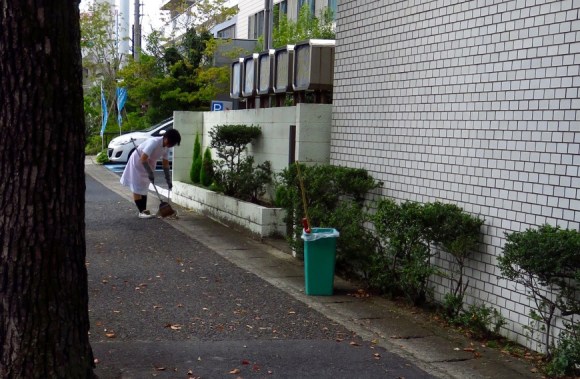
Japan must be one of the cleanest countries in the world. What’s behind it all? Find out what makes Japan so pika-pika!
While Japan has some environmental problems it has yet to thoroughly understand and tackle, such as garbage in the Seto Inland Sea, overall, it’s a pretty clean country. The cities in particular are extremely well looked after. Grafitti is rare, people seldom throw trash on the ground and there are no signs warning of a hefty fine if you do. While not all Japanese people are as persnickety about leading clean and uncluttered lives like their well-known compatriot Marie Kondo, when it comes to public cleanliness, Japanese cities habitually shine.
In Japan there is definitely a prevailing idea that clean is good. From children having to clean their own schools to ritualized shinkansen cleaning, it doesn’t take long for a tourist to suspect there is something behind all these sweeping, wiping, sanitizing busy bodies who don’t lick stamps and who take shoes off before entering a building.
Here are a few insights into the culture of cleanliness.
1. No public trash cans? No problem!
▼ Two men wait in line with their garbage to get on the ferry after a barbecue party on the beach on Shiraishi Island.
One of the first things you may notice when the set foot in the country is that there are few public garbage bins once you leave the train station. In my country, I’m pretty sure the reason we have so many public trash cans is to discourage people from just throwing stuff on the ground. But generally Japanese people don’t expect others to take care of their waste They’ve been taught that you should always take responsibility of your own mess and take any garbage you create home with you to dispose of.
2. Tidy garbage
▼ An individual trash bag is provided for every seat in long-distance buses.
One reason you receive a bag at a convenience store even when you order just one or two items is that the bag helps you keep everything in one place, even after the contents of the bag become garbage. Who wants to put an empty drink can or dirty yogurt cup in their purse or backpack until they can find a trash can? No one, which is why having that plastic convenience store bag encourages people to pitch their refuse properly. In long distance buses, an individual trash bag is provided at every seat with the express purpose of encouraging people to use it for their trash (and probably to take it home) rather than just tossing it on the floor or leaving it behind on their seat.
While it does seem like a waste of plastic, it helps remind people to mind their manners. And if you’re concerned about the environment, you’ll use your own bag for your garbage and leave that plastic one for someone who might truly need it.
3. Private homes and businesses are expected to keep their areas clean
▼ A nurse sweeps up fallen leaves outside a medical clinic.
Why would you need street cleaners when you have a potentially endless source of inhabitants to pool from in the buildings along the sidewalk? Every morning you’ll find various people in Japan sweeping up around their house or place of employment. These are not building maintenance workers, but shop keepers, office men, nurses, etc.
▼ An office employee sweeps up outside his building at lunch time.
4. There is an art to tossing things asunder
When it comes to household waste, you schlep your bags to the neighborhood’s designated curb yourself. On recyclable garbage days you’ll be expected to separate your garbage mindfully. And just to make sure you do, neighbors take turns overlooking the whole process (called gomi toban). Didn’t separate your newspapers from your magazines before stacking them on the pile? Didn’t rinse that soy sauce jar before tossing it in the recyclables bin? Tsk, tsk. You’ll have to take it back.
5. Volunteer litter cleaning organizations help keep awareness
▼ Volunteers from Greenbird Okayama, a non-profit organization, pose after a morning clean-up in the city (note their uniforms and gloves — always gloves!)
These NPOs take the pursuit of litter to an unprecedented level. Greenbird, an organization that can be found in many prefectures throughout Japan, invites citizens to regularly clean high traffic areas of the city such as near the train station. I joined this group once and was shocked. I thought we’d be picking up empty beer and soda cans, fast food wrappers etc. But no, we lifted tiny little pieces of paper off the dirt with tongs and collected cigarette butts that were hiding behind shrubs. Most of it was detritus that you could hardly even see. But that’s the idea–clean it up before it becomes noticeable. And people are less likely to leave a mess in orderly places than they are messy ones.
There’s a Greenbird branch in Singapore (no surprises there) and the Japanese organization has even taken their skills to Paris!
6. Immaculate Public Transportation is the norm
▼ A typical sparkling day at Kyoto’s train station
▼ The always gleaming shinkansen train
▼ Station cleaners even scrape up gum off the floor.
‘Nuff said!
7. Cleanliness–even on the road
One of the things that surprised me when I first came to Japan was that even commercial trucks, such as those used in construction, cement-making and dirt hauling, are kept meticulously clean. Every night after their shift, truck drivers are careful to wash down their vehicles. Those semis on the highways are spotless, the chrome polished, because their drivers take pride in having beautiful sparkly vehicles.
And let’s not forget the white-gloved taxi drivers, polishing their chariots as they wait for the next passenger.
8. Neighborhood clean-ups
If you live in Japan, you’re bound to be asked to join regularly scheduled (and semi-obligatory) community clean-ups in your neighborhood. At these preset times, sometimes as early as 7 a.m. so people can participate before they have to go to work, neighbors don gloves, carry shovels, scythes, rakes and clippers and collectively clear the street drains, cut back the trees, weeds and grass and generally tidy up the surrounding area, including small parks and public toilets. A little bit of help goes a long way and residents can take pride in their neighborhood. It’s just part of the clean and tidy culture and also helps neighbors bond together as a community.
There are many more reasons why Japan is so clean, but these are just a few we wanted to share with you. And more over, they seem to work!
Let us know what you’ve noticed about cleanliness in Japan in the comments section.
All images ©Amy Chavez/RocketNews24 unless otherwise noted


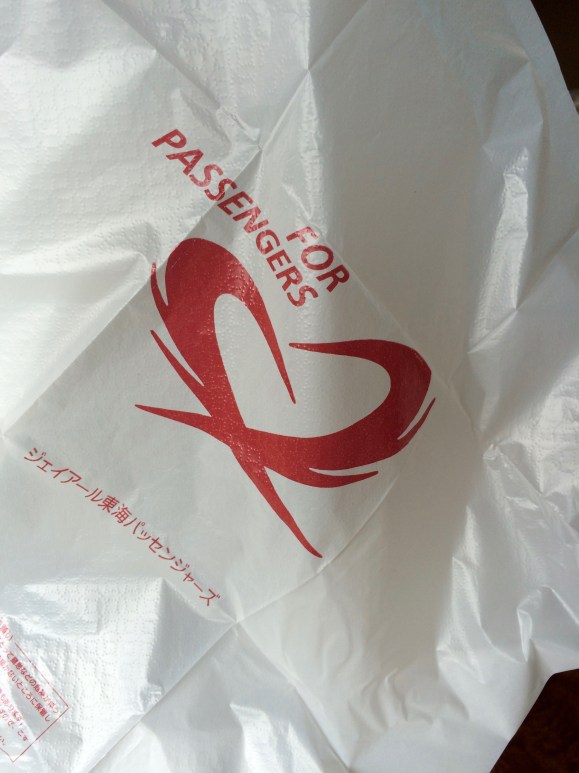
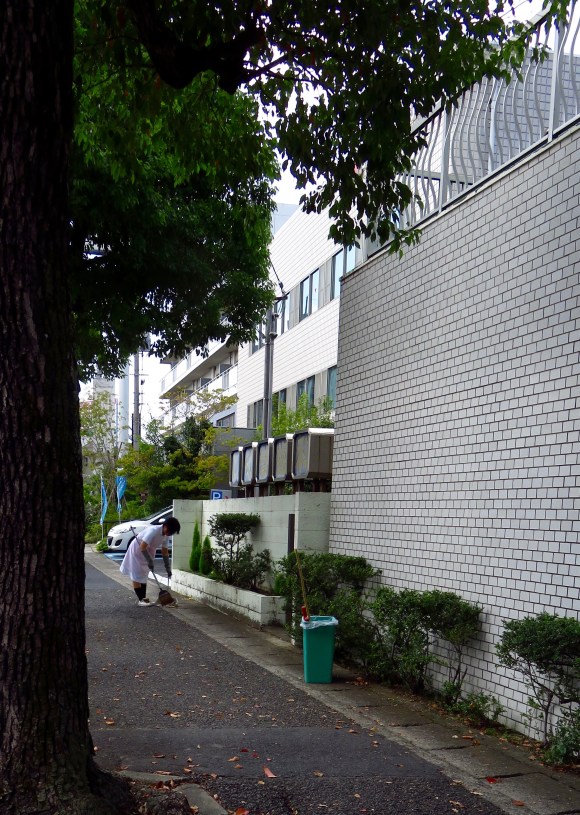
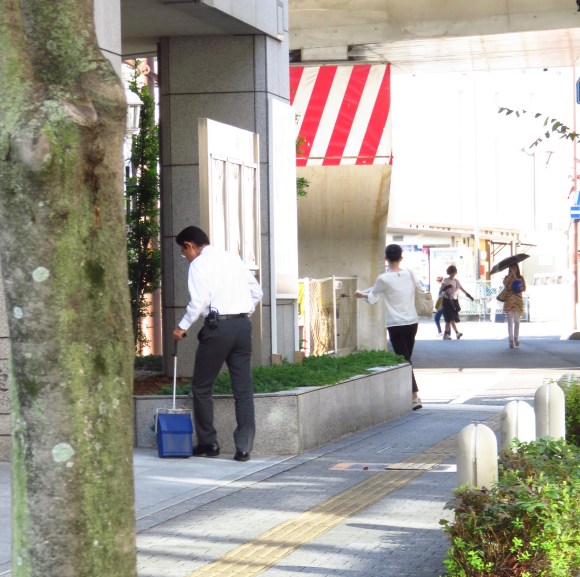
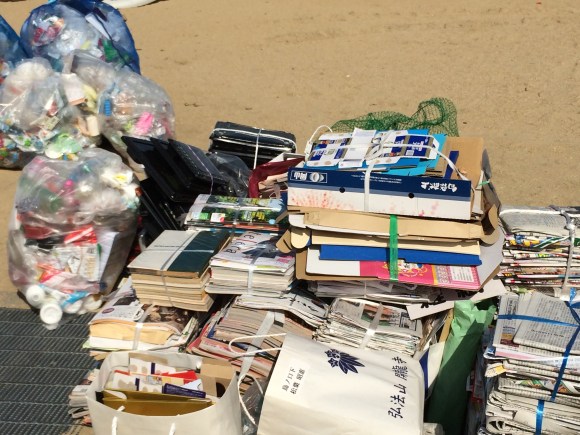
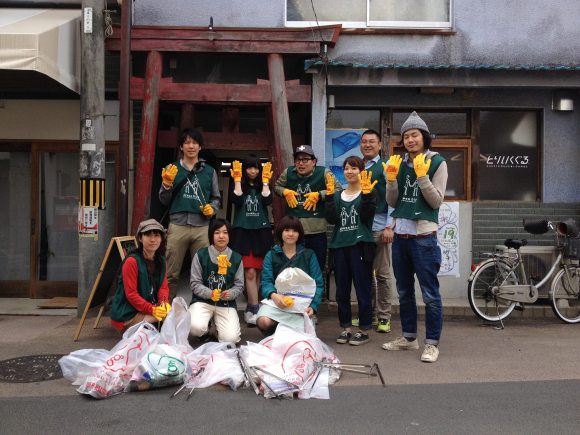
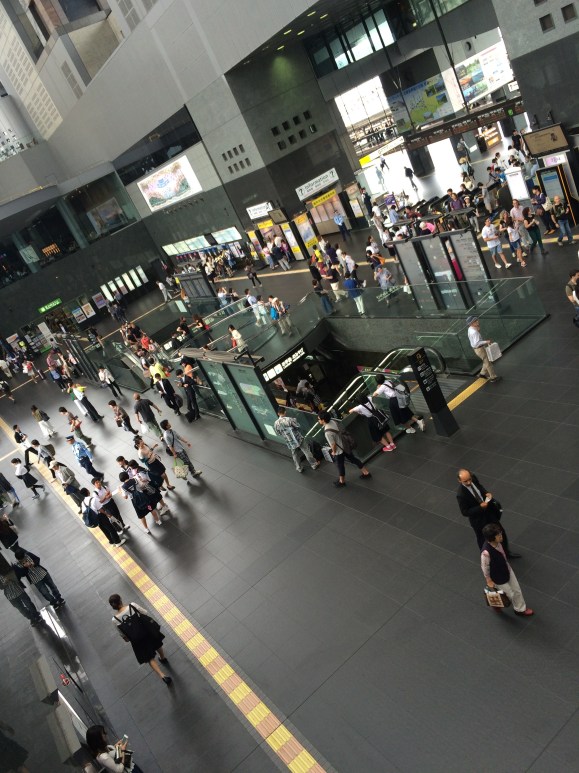

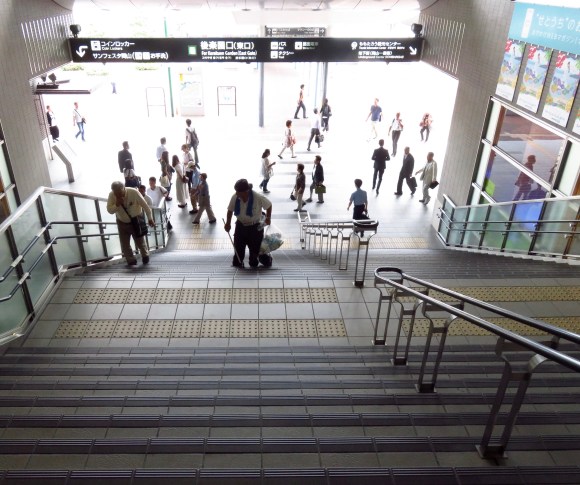
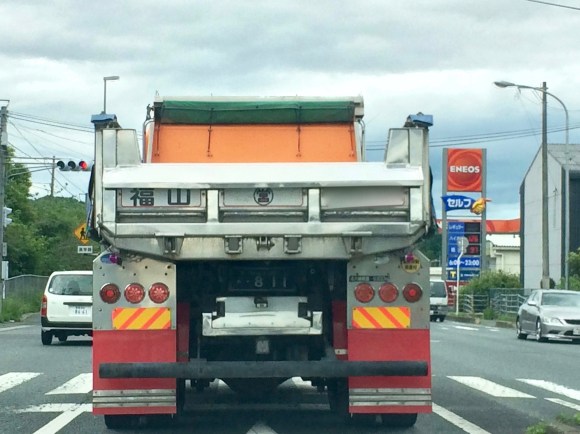

 Japan’s secret garbage problem–and what you can do to help
Japan’s secret garbage problem–and what you can do to help Jack-‘o-lantern trash bags being handed out to fight litter during Tokyo Halloween parties
Jack-‘o-lantern trash bags being handed out to fight litter during Tokyo Halloween parties You party, we tidy — Volunteers, kids hit Shibuya streets to clean up after Halloween hijinks
You party, we tidy — Volunteers, kids hit Shibuya streets to clean up after Halloween hijinks Japanese city changes “burnable trash” bags to “the only option is to burn this trash” bags
Japanese city changes “burnable trash” bags to “the only option is to burn this trash” bags Sumida River Fireworks Festival aftermath: Not everyone in Japan has perfect manners after all
Sumida River Fireworks Festival aftermath: Not everyone in Japan has perfect manners after all Seaside scenery, history, and so many desserts on Yokohama’s Akai Kutsu【Japan Loop Buses】
Seaside scenery, history, and so many desserts on Yokohama’s Akai Kutsu【Japan Loop Buses】 Foreigner’s request for help in Tokyo makes us sad for the state of society
Foreigner’s request for help in Tokyo makes us sad for the state of society Japan’s summertime towelket pillowcases are even better with the addition of Ghibli stars【Photos】
Japan’s summertime towelket pillowcases are even better with the addition of Ghibli stars【Photos】 Japanese city loses residents’ personal data, which was on paper being transported on a windy day
Japanese city loses residents’ personal data, which was on paper being transported on a windy day Do Hi-Chew-flavor Hi-Chews have a reason to exist?【Taste test】
Do Hi-Chew-flavor Hi-Chews have a reason to exist?【Taste test】 We test Daiso’s new storage container to see if it keeps rice fluffy even after freezing
We test Daiso’s new storage container to see if it keeps rice fluffy even after freezing Suicide cakes – Sweets to die for
Suicide cakes – Sweets to die for We taste makunouchi bento at four Japanese convenience store chains【Taste comparison】
We taste makunouchi bento at four Japanese convenience store chains【Taste comparison】 Japanese woman stumbles on the power of the infamous “gaijin seat” phenomenon during flight
Japanese woman stumbles on the power of the infamous “gaijin seat” phenomenon during flight Akihabara pop-up shop sells goods made by Japanese prison inmates
Akihabara pop-up shop sells goods made by Japanese prison inmates McDonald’s new Happy Meals offer up cute and practical Sanrio lifestyle goods
McDonald’s new Happy Meals offer up cute and practical Sanrio lifestyle goods Japanese ramen restaurants under pressure from new yen banknotes
Japanese ramen restaurants under pressure from new yen banknotes French Fries Bread in Tokyo’s Shibuya becomes a hit on social media
French Fries Bread in Tokyo’s Shibuya becomes a hit on social media Studio Ghibli releases new action figures featuring Nausicaä of the Valley of the Wind characters
Studio Ghibli releases new action figures featuring Nausicaä of the Valley of the Wind characters Red light district sushi restaurant in Tokyo shows us just how wrong we were about it
Red light district sushi restaurant in Tokyo shows us just how wrong we were about it New private rooms on Tokaido Shinkansen change the way we travel from Tokyo to Kyoto
New private rooms on Tokaido Shinkansen change the way we travel from Tokyo to Kyoto Tokyo Tsukiji fish market site to be redeveloped with 50,000-seat stadium, hotel, shopping center
Tokyo Tsukiji fish market site to be redeveloped with 50,000-seat stadium, hotel, shopping center Beautiful Ghibli sealing wax kits let you create accessories and elegant letter decorations【Pics】
Beautiful Ghibli sealing wax kits let you create accessories and elegant letter decorations【Pics】 Studio Ghibli releases Kiki’s Delivery Service chocolate cake pouches in Japan
Studio Ghibli releases Kiki’s Delivery Service chocolate cake pouches in Japan New definition of “Japanese whiskey” goes into effect to prevent fakes from fooling overseas buyers
New definition of “Japanese whiskey” goes into effect to prevent fakes from fooling overseas buyers Our Japanese reporter visits Costco in the U.S., finds super American and very Japanese things
Our Japanese reporter visits Costco in the U.S., finds super American and very Japanese things All-you-can-drink Starbucks and amazing views part of Tokyo’s new 170 meter-high sky lounge
All-you-can-drink Starbucks and amazing views part of Tokyo’s new 170 meter-high sky lounge More foreign tourists than ever before in history visited Japan last month
More foreign tourists than ever before in history visited Japan last month New Pokémon cakes let you eat your way through Pikachu and all the Eevee evolutions
New Pokémon cakes let you eat your way through Pikachu and all the Eevee evolutions Disney princesses get official manga makeovers for Manga Princess Cafe opening in Tokyo
Disney princesses get official manga makeovers for Manga Princess Cafe opening in Tokyo Sales of Japan’s most convenient train ticket/shopping payment cards suspended indefinitely
Sales of Japan’s most convenient train ticket/shopping payment cards suspended indefinitely Sold-out Studio Ghibli desktop humidifiers are back so Totoro can help you through the dry season
Sold-out Studio Ghibli desktop humidifiers are back so Totoro can help you through the dry season Japanese government to make first change to romanization spelling rules since the 1950s
Japanese government to make first change to romanization spelling rules since the 1950s Ghibli founders Toshio Suzuki and Hayao Miyazaki contribute to Japanese whisky Totoro label design
Ghibli founders Toshio Suzuki and Hayao Miyazaki contribute to Japanese whisky Totoro label design Doraemon found buried at sea as scene from 1993 anime becomes real life【Photos】
Doraemon found buried at sea as scene from 1993 anime becomes real life【Photos】 Tokyo’s most famous Starbucks is closed
Tokyo’s most famous Starbucks is closed One Piece characters’ nationalities revealed, but fans have mixed opinions
One Piece characters’ nationalities revealed, but fans have mixed opinions We asked a Uniqlo employee what four things we should buy and their suggestions didn’t disappoint
We asked a Uniqlo employee what four things we should buy and their suggestions didn’t disappoint Princesses, fruits, and blacksmiths: Study reveals the 30 most unusual family names in Japan
Princesses, fruits, and blacksmiths: Study reveals the 30 most unusual family names in Japan Fujisawa Enoshima Fireworks Festival results in one ton of garbage strewn on the beach
Fujisawa Enoshima Fireworks Festival results in one ton of garbage strewn on the beach Divine prevention – Japan using Shinto symbols to combat litter and public peeing
Divine prevention – Japan using Shinto symbols to combat litter and public peeing Kyoto’s newest anime mascot has a stinky name, is worried about garbage, and is a fairy
Kyoto’s newest anime mascot has a stinky name, is worried about garbage, and is a fairy 4 freezer tips for beating the summer stink from everything from sweaty shoes to rotting garbage
4 freezer tips for beating the summer stink from everything from sweaty shoes to rotting garbage This Chinese university student’s room is so messy, it made news headlines【Video】
This Chinese university student’s room is so messy, it made news headlines【Video】 Titan trash can to be placed near a Coca-Cola vending machine in Oita to help promote recycling
Titan trash can to be placed near a Coca-Cola vending machine in Oita to help promote recycling “Annoying to put on clothes,” Kochi City official arrested for taking out garbage naked
“Annoying to put on clothes,” Kochi City official arrested for taking out garbage naked “Recycling in Japan” or “Reasons to get it right and avoid eternal shame”
“Recycling in Japan” or “Reasons to get it right and avoid eternal shame” Shibuya Halloween cosplay cleanup crew wants your help this year!
Shibuya Halloween cosplay cleanup crew wants your help this year! How to dispose of pizza boxes: Life hack from Japanese garbage man goes viral online 【Video】
How to dispose of pizza boxes: Life hack from Japanese garbage man goes viral online 【Video】 Open stall indicators, fresh flowers, and the superb cleanliness of a Japanese highway restroom
Open stall indicators, fresh flowers, and the superb cleanliness of a Japanese highway restroom Tokyo Metropolitan Police shows us how to make garbage bags out of newspaper
Tokyo Metropolitan Police shows us how to make garbage bags out of newspaper Cat Robo: The automated cat toilet that frees you from ever having to sift through kitty litter
Cat Robo: The automated cat toilet that frees you from ever having to sift through kitty litter Japanese baseball fans disappointed by filthy conditions visiting Major Leaguers left dugout in
Japanese baseball fans disappointed by filthy conditions visiting Major Leaguers left dugout in
Leave a Reply